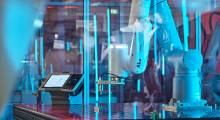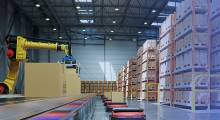SmarTech Analysis has released a new analysis model to address opportunities associated with metal additive manufacturing production and applications. Using an analysis methodology of metal additive technology adoption metrics and dynamics already tracked by other SmarTech analysis services, this latest report gives insight into the industries and applications driving metal AM, and expectations for what business cases and areas of application will grow.
SmarTech expects that metal AM will continue to gradually amass more and more production-oriented business cases, resulting in hundreds of billions of dollars in impact to the global manufacturing market over the next decade.
For more details on the report, click here.
The accompanying dataset includes hundreds of data tables comprising an analysis of production activity and forecasts spanning metal AM technologies, regions, markets and applications.
Excluding metal AM in the dental applications, the rest of the metal AM industry is expected to shift from a prototyping-dominant technology to a production component dominant industry by the end of 2022, the report indicates. The bound metal printing technology market will continue to drive growth in prototyping for metal components due to a lower cost structure and highly accessible systems, but production applications will account for 60% of market value from all produced components annually by the end of the forecast period.
Several trends are expected to impact the production structure of metal additive technologies in the coming decade, including efforts in design for additive manufacturing, with designers consolidating assemblies into fewer parts that can only be produced by additive manufacturing. Also, efficiency and production-cost improvements of the individual technologies are being realized through scalable deployments and efficient material handling and post-processing. Across all technologies, markets and applications, SmarTech anticipates that production costs associated with use of metal AM will fall 40% on average per part by the end of the forecast period, despite part consolidation and performance trends.
Sources: Press materials received from the company and additional information gleaned from the company’s website.
About the Author
Press releases may be sent to them via [email protected]. Follow Robotics 24/7 on Facebook
Follow Robotics 24/7 on Linkedin
Article topics
Email Sign Up















